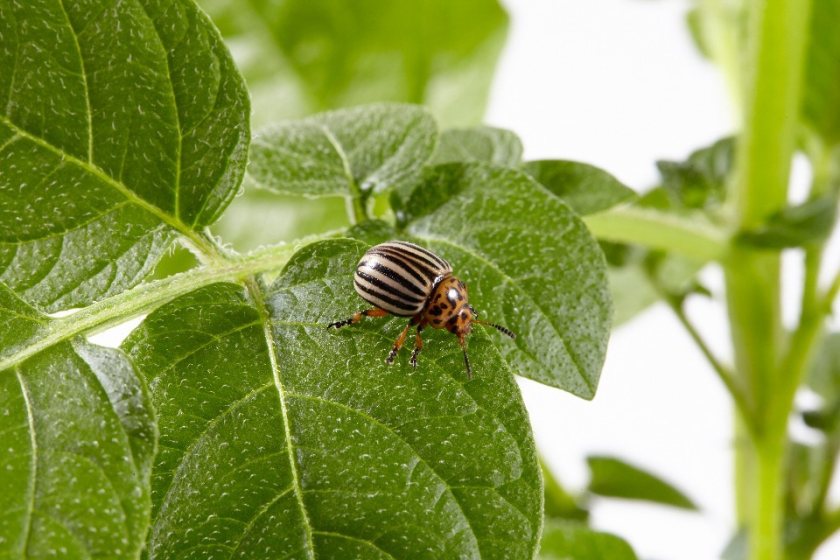
Farmers and growers are being are asked to remain vigilant after the government confirmed findings of Colorado potato beetle larvae in Kent today.
Beetle larvae identified in a field in Kent was confirmed by Defra and the Animal and Plant Health Agency (APHA) as Colorado potato beetle (Leptinotarsa decemlineata).
It is the first time an outbreak of the beetle has been confirmed in the UK since 1977, although they are endemic in large parts of Europe.
If not eradicated, Colorado potato beetles are a significant threat to potato crops. However, they are not a threat to human or animal health.
Adult beetles and larvae feed on the foliage of potato and other plants in the nightshade family and can completely strip them of their leaves if they are left uncontrolled.
Confirmation was made following laboratory diagnosis of samples taken by APHA’s Plant Health and Seeds Inspectorate.
The government said APHA was working with the affected grower to eradicate the pest from the site.
This includes performing a 1km survey to determine whether there are further cases beyond the immediately infested area.
UK Chief Plant Health Officer Nicola Spence said: "Following a report, our experts have identified the presence of Colorado beetle larvae in a potato field in Kent.
"We are responding swiftly through our eradication programme, involving ground surveillance to look for beetles and larvae at the outbreak site and surrounding area.
"Whilst this pest does not pose a threat to human health, we encourage all growers, farmers, processors and the public to remain vigilant and report any sightings, especially in Kent."
Farmers and growers in particular are being encouraged to remain vigilant for signs of the pest.
The beetle is bright yellow or orange with black stripes and is usually between 8.5-11.5mm in length and 3mm in width.
Its larvae are a reddish brown in colour, round and globular, and up to 15mm in length.
The beetle is not endemic to the UK and is currently regulated as a Great Britain quarantine pest, with import and movement restrictions in place for susceptible host material.
APHA is obligated by the government to act upon the current findings and eradicate this pest to support the UK's efforts to maintain this status.
